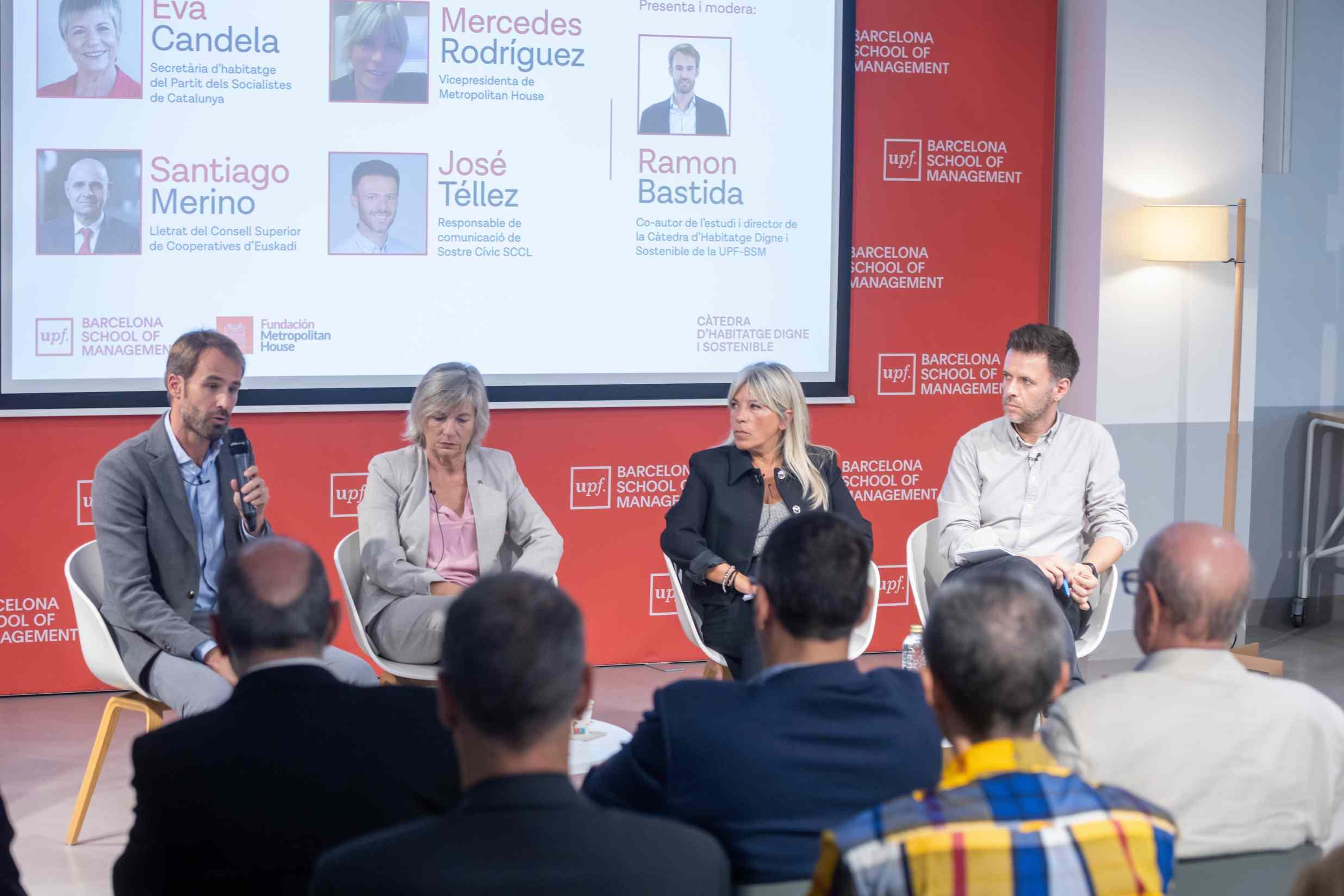The UPF-BSM’s Chair in Decent and Sustainable Housing presents the new trends in the housing cooperative sector
28 Octubre - 2024
The new housing cooperative models boast innovative features such as the members participating directly in building the properties, professionalized internal regulation systems to ensure trouble-free coexistence, and a wide range of financing options, as well as a marked degree of environmental awareness.
These are some of findings of the report “Housing Cooperatives: New Trends in Creation, Management and Financing”, presented today by Ramón Bastida, The Director of the Chair in Decent and Sustainable Housing, and Professor Maridalia Rodríguez.
The session also included a round table panel, with the participation of Eva Candela, the Secretary of Housing of the Socialist Party of Catalunya; Santiago Merino, a lawyer on the Senior Cooperative Council of Euskadi-UPV/EHU; Mercedes Rodríguez, the Vice-President of Metropolitan House; and José Téllez, the Director of Communication at Sostre Cívic SCCL.
According to the report, the new trends in housing cooperative mark a turning point in this form of tenure, with a highly varied and innovative range of projects now under way, designed to meet the housing needs that traditional cannot fulfill.
“We must not forget that housing is one of the biggest challenges in our society and housing cooperatives are an instrument that can help increase the stock of affordable housing”, explained Ramon Bastida.
The report conduct a review of the latest developments in the field of housing cooperatives, as well as their potential as a model for developing housing based on the social economy as a viable alternative to buying or traditional renting. The study is based on an analysis of eight national and international experiences in countries such as Denmark, Uruguay and Canada.
New developments
Environmental awareness is one of the key aspects that characterizes modern housing cooperatives. Older projects did not initially incorporate this kind of consideration, while new cooperatives embrace environmental sustainability as an essential feature.
Another aspect highlighted in the study is the marked degree of public participation in financing cooperatives at an international level, while, in Spain, we are just seeing the early stages of this type of participation. The report also emphasizes that, in the case of Spanish housing cooperatives, there is significant interest in concession of use and cooperative housing developments on land subject to surface rights.
“There have always been housing cooperatives in Spain but, in recent years, there has been growing interesting in concession of use” explained Maridalia Rodríguez. “The reality is that international cohousing projects have far greater support in terms of public financing than in Spain. Here, there is a very varied range of financing mechanisms”.
With respect to the financing model, the report also examines public-cooperative partnerships as an innovative form of reciprocity between the public and private sectors which enables the affordable housing stock to be increased, while, at the same time, catering for the social demand for more horizontal mechanisms of joint decision-making. “Public-cooperative partnership is emerging as a key factor in the field of housing”, added Maridalia Rodríguez.
The analysis of international housing cooperative models concludes that, in countries such as Denmark, Uruguay and Canada, this kind of instrument has proven to be a solution that facilitates access to housing at cost-price, based on self-management of the project by the beneficiaries themselves.
In Spain, the implementation of this model has tended to focus on a property structure, being seen more as a short transitory stage than as a real model for accessing housing. “Here, the number of properties managed by housing cooperatives has doubled over the past ten years, suggesting that they may be a real alternative for affordable housing, generating this extra social, economic and environmental benefit”, concluded Ramon Bastida.
